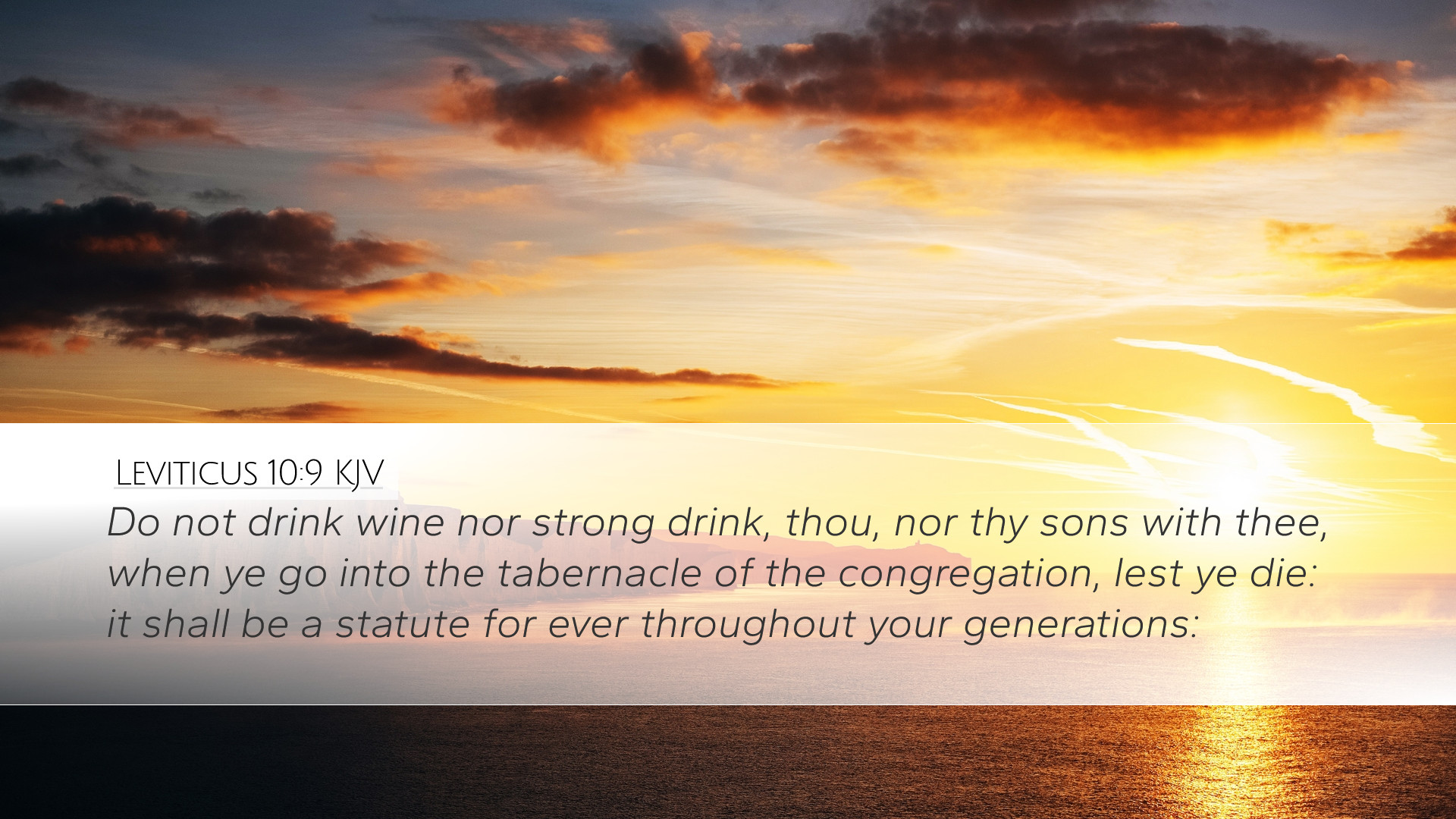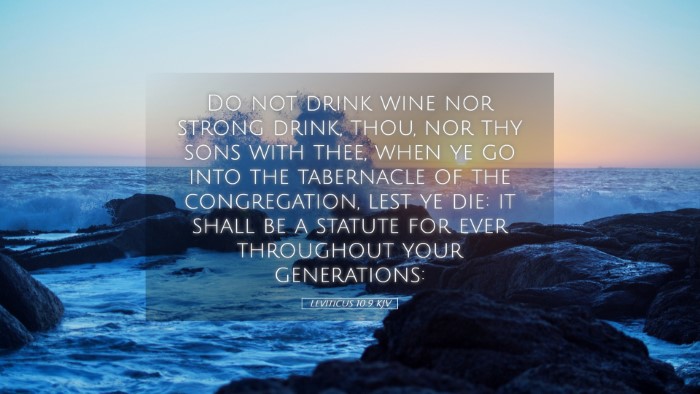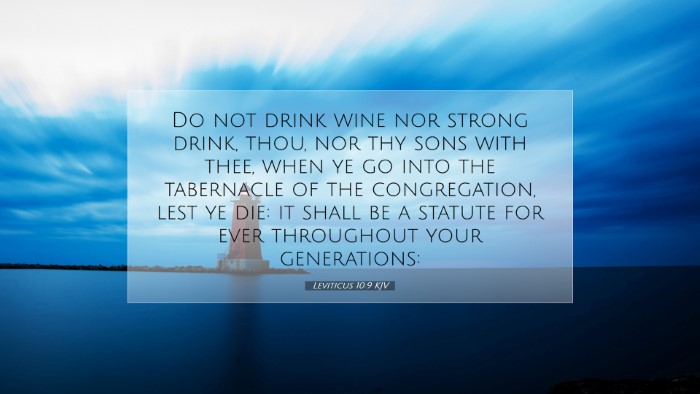Bible Commentary on Leviticus 10:9
Verse Context: Leviticus 10:9 states, "Do not drink wine or strong drink, you, or your sons with you, when you go into the tent of meeting, lest you die. It shall be a statute forever throughout your generations." Here, the Lord explicitly warns against the consumption of intoxicants for the priests when they are engaged in their holy duties.
Commentary Insights
1. The Importance of Holiness in Ministry
Matthew Henry emphasizes that the role of the priest is to maintain holiness both personally and in their service to God. The prohibition against drinking before entering the tent of meeting underscores the seriousness of their responsibilities. It is vital that ministers remain sober-minded, as they represent God's presence among His people.
This notion of keeping oneself free from intoxicants relates not only to the physical state but also to spiritual clarity. The ministry is often likened to warfare, requiring spiritual vigilance. Thus, even a minor lapse through intoxication could lead to disastrous spiritual consequences.
2. Historical Context and Implications
Albert Barnes notes that this command came after the tragic incident of Nadab and Abihu, Aaron’s sons, who offered unauthorized fire before the Lord and suffered dire consequences. Their demise serves as a poignant reminder of the dangers of approaching God without reverence. This command is an explicit reminder that ministry duties can never be taken lightly.
It is instructive to recognize that this statute was not just for the immediate context but was to apply "forever throughout your generations." The lasting nature of this command emphasizes the ongoing requirement for both appropriate conduct and reverential fear in worship.
3. Spiritual Clarity and Guidance
Adam Clarke elaborates on the implications of being under the influence of alcohol while performing religious rites. He discusses how alcohol can impair judgment and decision-making capabilities. In a context where divine guidance and clarity are crucial, priests must remain decisive and clear-headed.
This barrier against intoxicants serves as a broader lesson for all believers regarding their spiritual duties. The consumption of alcohol, particularly in excess, can dull the senses that are essential for discerning God’s will.
4. Application for Contemporary Ministry
In light of this passage, modern pastors and church leaders are encouraged to reflect on their own practices concerning clarity in leadership. The principle remains that spiritual leaders must embody a lifestyle that prioritizes holiness and discernment.
- Community Leadership: Just as the priests represented the community before God, so should contemporary leaders represent Christ diligently—without the distractions or impairments of substances.
- Personal Integrity: Leaders are called to model integrity in all aspects of life, extending beyond the church walls into daily conduct and social settings.
- Awareness of Influence: Just as intoxicants can impair judgment, other vices that pull leaders away from their calling must also be avoided.
5. Reflecting on Worship Practices
This verse invites reflection on our collective worship practices. Are there elements within our worship contexts that may lead distractively or detract from the honor due to God? Holy discernment, like that taught in Leviticus 10:9, remains crucial for creating environments conducive to encountering God's presence.
Moreover, the priestly role extends beyond clergy. Every believer is called to a priesthood described in 1 Peter 2:9. Thus, Christians must be vigilant against anything that compromises their spiritual effectiveness, including the use of intoxicants.
Conclusion
In conclusion, Leviticus 10:9 serves as a powerful reminder of the sacredness of God’s calling. Both ancient and contemporary leaders are called to preserve their integrity and focus on their sacred duties. The insight from public domain commentaries reinforces the essential nature of maintaining spiritual clarity in ministry—a truth that resonates deeply with all who seek to honor God within their communities.


